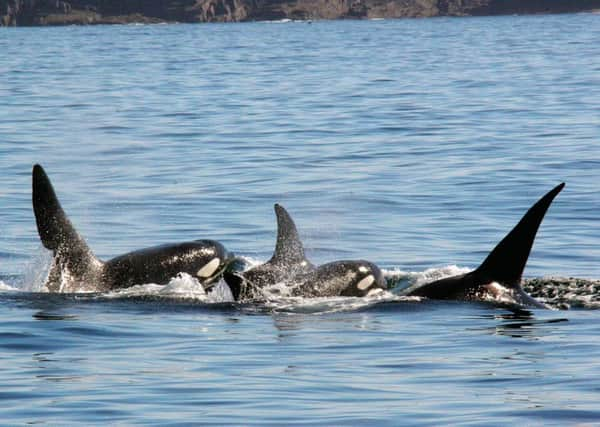Drone to give scientists new outlook on whales


Marine scientists at the Hebridean Whale and Dolphin Trust (HWDT) have been given a drone and special pilot training from air traffic controllers to allow them to remotely observe the protected ocean giants.
It’s thought HWDT could be the first UK marine research organisation to use drones in efforts to conserve whales, dolphins, porpoises and basking sharks.
Advertisement
Hide AdAdvertisement
Hide AdDonated by electronics retailer Maplin, the drone can be operated from land or from the Mull-based charity’s yacht, used to carry out marine surveys.
It will give researchers a closer view of the animals than was previously possible, with minimal intrusion.
And HWDT team members will soon be skilled pilots after having free lessons from National Air Traffic Services (Nats), the UK’s main air navigation service provider.
“We are thrilled to have been given the opportunity to become commercial drone operators, gaining an understanding of the theory as well as the technical,” said Alison Lomax, HWDT director.
“The drone we now have will help us to champion the area for responsible whale and dolphin watching, encouraging more people to visit the Hebrides and enjoy the marine wildlife.
“The ability to operate a drone safely and legally around protected wildlife is so important to our mission.
“We’re incredibly grateful to Nats for organising the training and to Maplin for donating the drone.”
Widespread access to drones is relatively new and concerns have been raised over the potential for irresponsible use to harm sensitive wildlife. This year the international charity Whale and Dolphin Conservation issued a warning to people planning to film migrating whales in Australia after reports of a huge increase in drone use.
Advertisement
Hide AdAdvertisement
Hide AdResearchers at HWDT say they are “acutely aware of the potential disturbance human activity, including drone use, can have on marine life”.
The Nats course outlines the knowledge needed to get permission from the Civil Aviation Authority to fly the aircraft. Tuition on operating the challenging environments experienced at sea is also being given.
William Vine-Brown, drone training specialist, said: “The trust’s work is a great example of the positive impact drones can have. It’s encouraging to see the trust’s proactive approach in adopting such technology, and it’s important for us to know we have given them proper training in using the drone safely and responsibly.”
Andrew Uden, Maplin technical director, said: “We were delighted to support such a worthwhile initiative. We were able to provide the perfect drone matching HWDT’s needs, enabling them to simply and effectively monitor whales, dolphins and porpoises.”
One job for the new piece of kit will be to scope out sites for the charity’s new Hebridean Whale Trail, a network of coastal whale-watching spots.